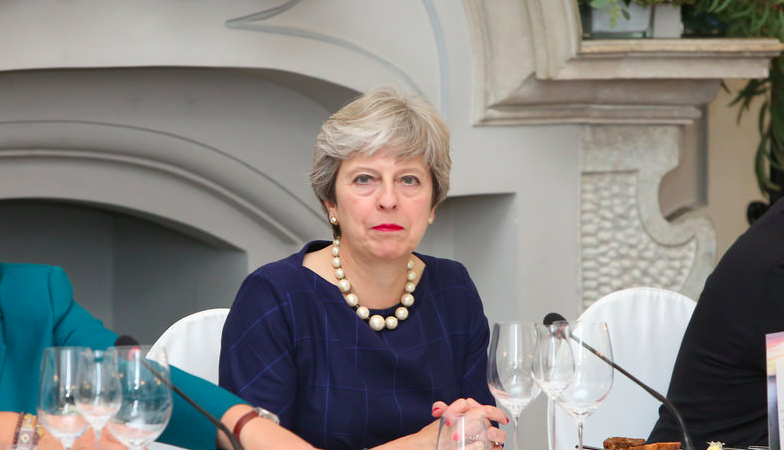The Conservatives may have as few as 70,000 members, putting them behind Labour, the SNP, the Lib Dems and possibly even the Greens.

The Tories may be suffering an “embarrassing” drop in members, a senior party politician suggested over the weekend — which would explain why they’ve not released figures since 2013.
The Conservatives must “come clean” on membership numbers, former party chairman Grant Shapps said on Friday. “Transparency” was vital even if the figures were “embarrassing” he said.
“Coming clean about membership is step number one” in rebuilding the Conservative Party’s strength ahead of the next general election, Shapps said on Friday in an unexpected intervention.
CCHQ last released membership figures in 2013 showing the party had just under 150,000 members — some sources believe the number has dropped below 100,000.
Other sources within the Tory party claim membership could be as low as 70,000.
The Tories would be the fourth largest party in the UK, behind the Labour, the SNP and the Lib Dems if the figure were below 100k.
At the same time signups to the Labour party have surged by over 300,000 in the last three years, taking party membership up to over half a million.
As the graph below shows, the lack of transparency over Tory party membership is becoming increasingly conspicuous:
Shapps intervention suggests the Tories continue to suffer a massive crisis of engagement and democracy threatening the party’s very survival, much inline with what a Tory think-tank warned last September.
The Tories risked “losing the political narrative and momentum for the foreseeable future” unless they transformed themselves, the Tories’ oldest think-tank, the Bow Group, cautioned during the conference last year.
What the Bow Group pointed out then remains unchanged now:
- The average age of a party member is currently 72 years old.
- There has not been a Conservative Party leadership election since 2005.
- Since 2005 Conservative Party membership has fallen by two thirds.
- Labour members now outnumber Conservatives by 7 to 1.
In a striking intervention, they argued there must be a “revolution” in the party, emulating Labour in order to survive, saying:
“Labour have gone through the necessary and painful transition from centrist politics and have emerged stronger. The Conservative Party must urgently follow suite”.
“The Bow Group has long seen the issue of declining Conservative Party membership and enthusiasm for the Conservative vision as symptom of lacking party democracy and a rigid adherence to centrist values.”
Shapps intervention suggests that the party’s problems with membership and engagement are becoming only more pressing. The Tories face utter irrelevance if things continue as they are, and that’s probably not a bad thing.
Left Foot Forward doesn't have the backing of big business or billionaires. We rely on the kind and generous support of ordinary people like you.
You can support hard-hitting journalism that holds the right to account, provides a forum for debate among progressives, and covers the stories the rest of the media ignore. Donate today.





7 Responses to “Covering up “embarrassing” membership numbers reveals a wider crisis in the Tory Party”
William
Sounds like Misty May just may be on her way to the recycling centre soon, hurrah!
Trouble is, look what is lurking behind her—-
I have an idea. How about holding a General Election?
The outcome would be very interesting.
NMac
I hope they continue to fall, …but much more quickly.
Alasdair Macdonald
The fact is that those who are the real power brokers do not really need a mass membership party to put their views across. During the Scottish referendum and in the years following we have been fed a continual diet of pro union propaganda by organisations like No Borders and Scotland in Union, which, while presenting themselves as ‘grassroots’, are in fact run by not much more than three people and a dog. They operate via a compliant media who dutifully publish or broadcast their handouts. However as recently leaked documents show, these organisations are funded by the wealthy, and predominantly Tory voting landowning and business class. They create an impression of a cross party alliance by having people like Graham Pearson and Pamela Nash, both former Labour MSPs as Successive chief executives. It is this cosy relationship between many prominent Labour figures with the Tories which offends and drives away many traditional Labour voters. Momentum in England is substantially a result of similar distaste for the kind of friendships many Blairite and other Labour figures have.
Will
It seems the Conservatives can count on the support of around 42% of voters, enough to keep them in power, no matter how badly they govern and without any real party organization in the country.
Things can not get much worse.
Tony
This has very serious long-term consequences for the Conservative Party that will help to make it less electable.